Dubbed the “Finance COP”, the two-week 2024 UN climate conference (COP29) will kick off on Monday in Baku, Azerbaijan with a focus heavily on securing a new climate finance target for countries most vulnerable to climate impacts.
It will bring together negotiators from nearly 200 countries, including India, to advance the Paris Agreement’s goals of limiting global temperature rise, strengthening climate resilience, and mobilising support for developing nations.
With solutions on the table but investment still lagging, especially in developing countries, on the frontlines of the crisis, a strong financial outcome at COP29 could unlock a new era of action.
The single biggest measure of success will be whether negotiators can agree on an ambitious new climate finance goal that truly meets developing countries’ needs.
Ensuring these countries have enough resources to swiftly slash emissions is a prerequisite for halting global temperature rise and preventing floods, droughts and other disasters around the world.
World Resources Institute (WRI) experts are looking for four key outcomes from this year’s summit: an ambitious new climate finance goal, momentum for stronger national climate commitments, tangible progress on past pledges, and increased funding for loss and damage.
For India and the Global South, access to finance, technology, and energy resources remains critical to meeting climate targets and protecting communities on the frontlines of climate change.
COP29 may well be among the most consequential climate summits since the Paris Agreement, since the discussions are set to address the New Collective Quantified Goal (NCQG) for climate finance, a framework that aims to replace the annual commitment of $100 billion by 2020 made by developed countries in 2009 -- a target met only once, in 2022.
The climate finance gap, however, continues to widen each year. Securing an agreement on a new climate finance goal is increasingly critical; the longer developed countries fail to meet existing targets, the larger the future financial burden will be.
India has so far played a key role in shaping global climate finance frameworks to address the urgent funding needed for both mitigation and adaptation efforts.
At Baku, India will seek an NCQG that is far ahead of the outdated $100 billion annual target set in 2009.
Country-level and regional submissions from various blocs range from $1 trillion to $1.3 trillion. This is in line with the $1 trillion that the Independent High-Level Expert Group (IHLEG) has said is needed for developing countries, excluding China, to accelerate climate action.
Some of the notable submissions are: India stating that developed countries need to provide at least $1 trillion of climate finance per year; the African Group proposing a goal of $1.3 trillion per year for developing countries, with a stronger focus on the quality of finance; the Arab Group stating that the goal should be of $1.1 trillion from developed to developing countries not including arrears for the 100 billion; and UNCTAD, which aligns with G77 countries, suggesting a contribution target for developed countries of $0.89 trillion in 2025, reaching $1.46 trillion by the fifth year of implementation.
According to the Second Needs Determination Report by the UNFCCC Standing Committee on Finance (SCF), developing nations will need between $6.852 trillion cumulatively until 2030 to achieve their stated Nationally Determined Contributions (NDCs).
The country’s stance going into COP29 and G20 Brazil will continue to focus on equitable finance for adaptation and mitigation, with a clear emphasis on accountability from developed nations.
India is among the nations that support prioritising public, grant-based and concessional finance for all developing nations. It supports private finance in a supplementary role as a catalyst.
At the G20 Summit in 2023, India pushed through a major financial ask on behalf of Global South nations citing estimates of $5.9 trillion by 2030 needed to implement Nationally Determined Contributions (NDCs) alone, and a further $4 trillion annually for clean energy technology.
This work was consolidated further at G20 Brazil, where finance ministers sought deeper reform of the international finance architecture -- from multilateral development banks (MDBs) to the IMF, financial regulation and addressing debt vulnerabilities of poorer nations.
Despite ambitious targets, India has only been attracting around $50 billion annually for climate-related investments, split between public funding and private capital, of which 85 per cent is from domestic sources.
In contrast, it needs annual investments worth $250 billion till 2047 to prepare India’s energy systems for net-zero pathways, according to Niti Aayog.
India’s Economic Survey 2023-24 indicates that India will need approximately $2.5 trillion by 2030 to fulfil its commitments under the Paris Agreement.
The country is trying to bridge the financial gap in funding needs through international partnerships, and domestic mechanisms like CSR funding and government-backed green bonds but more is needed.
As a leader of the Global South, India has sought to direct climate finance discussions within a long-term perspective, beyond 2030.
Energy issues will be high on the agenda at COP29. To kick off, as part of the leaders' summit on November 12, a ministerial dialogue will examine scaling up investment for tripling renewables and doubling energy efficiency, to drive implementation of targets agreed at COP28.
On the same day, there will also be a high-level roundtable on energy focusing on advancing climate mitigation action.
The COP29 thematic day on energy, on November 15, will feature a high-level roundtable on green energy, hydrogen and global energy storage and grids, as well as an event on making 2024 the pivotal year for clean cooking.

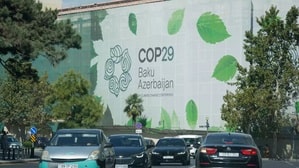
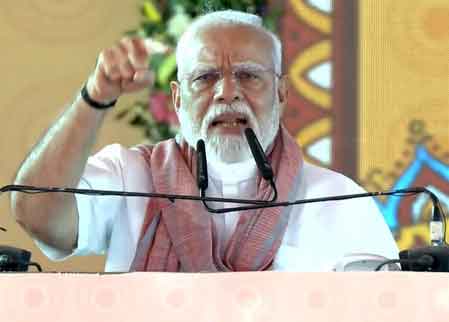
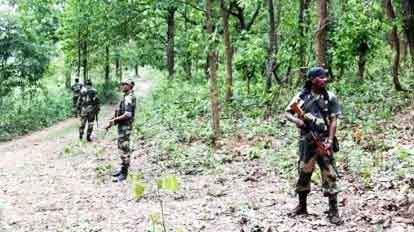
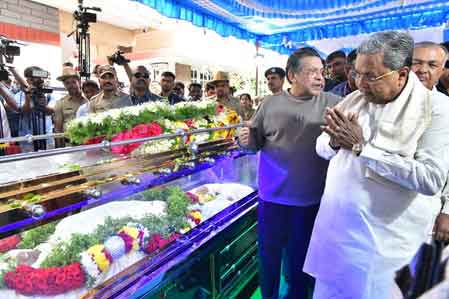
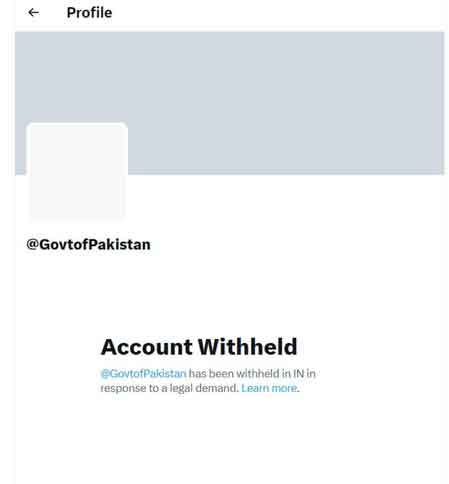
India will identify, trace, punish every terrorist and their backers: PM Modi on Pahalgam attack
Prime Minister Narendra Modi on Thursday issued a powerful warning to the "enemies" of the nation, stating that India will "identify, trace, and punish" every terrorist and their supporters, pursuing them to the "ends of the Earth."
Massive crackdown on Maoists on Chhattisgarh-Telangana border, three killed
In a significant crackdown against Maoist insurgents, security forces in Chhattisgarh have launched a major operation in the Karregatta hills of Bijapur district. The operation has already resulted in the deaths of three Maoists, with their bodies recovered by the police.
K’taka CM pays final respects to Bharat Bhushan, says 175 Kannadigas brought back from Kashmir
Karnataka Chief Minister Siddaramaiah on Thursday visited the residence of 35-year-old Bharat Bhushan, in Mathikere, Bengaluru, who was shot dead in front of his family by terrorists in Pahalgam and paid his final respects.
India withholds Pakistan govt's official X account over Pahalgam terror attack
The official X handle of the Government of Pakistan has been withheld by India following the dastardly terror attack in Jammu and Kashmir's Pahalgam, which killed 26 people and injured several others.
Gujarat CM attends last rites of Pahalgam terror attack victims
Gujarat Chief Minister Bhupendra Patel on Thursday attended the last rites of a man and son duo who were killed in the terrorist attack in Kashmir's Pahalgam.
Terror attack victim Madhusudhan Rao's body reaches hometown in Andhra Pradesh
The mortal remains of Somishetty Madhusudhan Rao, one of the victims of Pahalgam terror attack, reached his hometown Kavali in Andhra Pradesh's Nellore district on Thursday.
AMC Presents ₹475.83 Cr Budget for FY 2025-26
The Agartala Municipal Corporation (AMC) on Wednesday unveiled its budget for the fiscal year 2025-26, pegged at ₹475.83 crore, with an estimated expenditure of ₹476.50 crore — resulting in a projected deficit of ₹72.02 lakh.
Minister Sushanta Chowdhury encourages rural youths for livestock rearing to become self-reliant
The state transport and tourism minister Sushanta Chowdhury on Wednesday inaugurated a day long block level livestock fair here at Jirania subdivision in West Tripura district and said that the farmers in Tripura are becoming self-reliant through livestock rearing besides agricultural production.